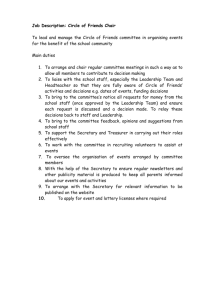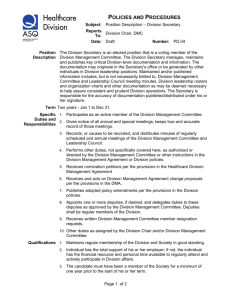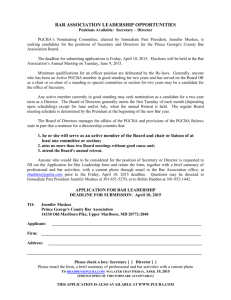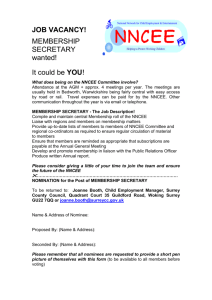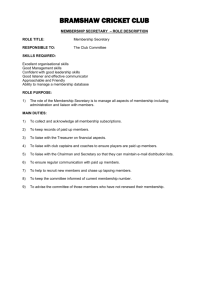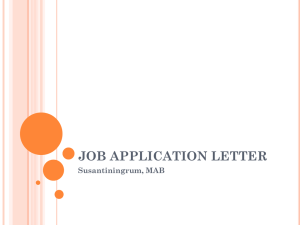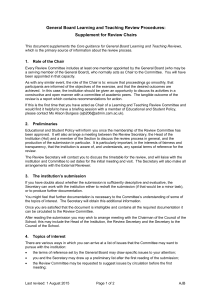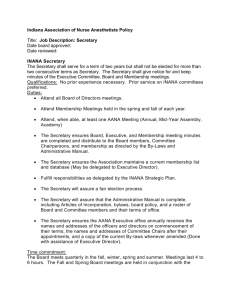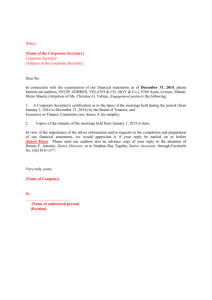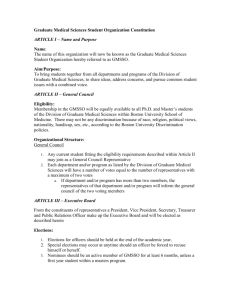File - Medic Mentor
advertisement
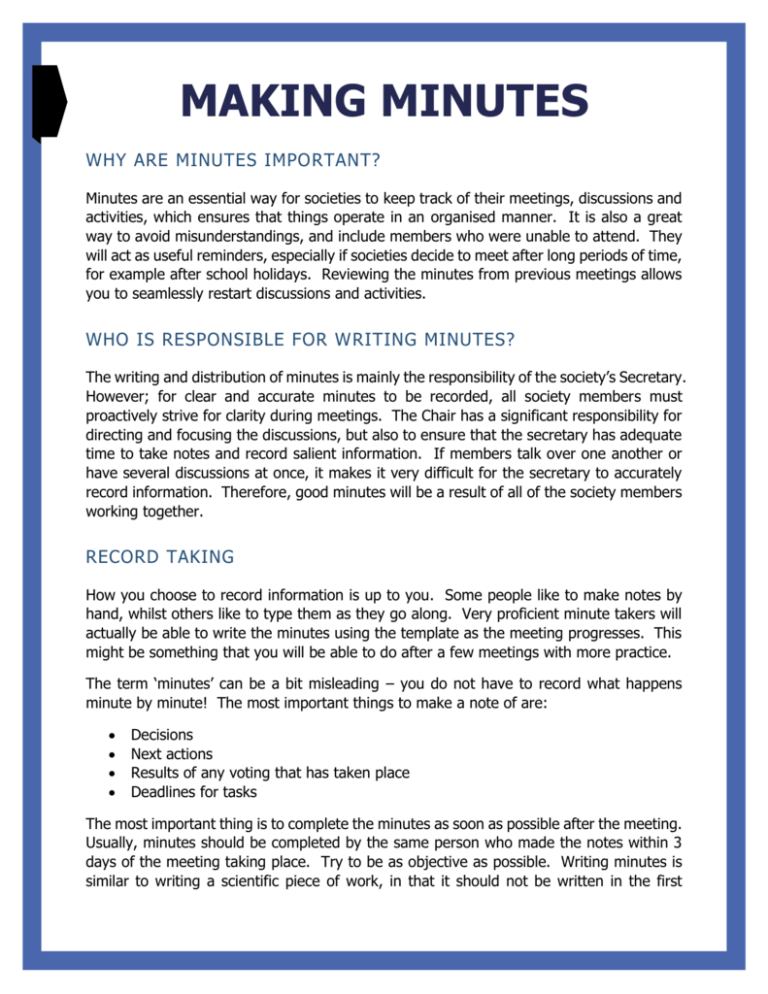
MAKING MINUTES WHY ARE MINUTES IMPORTANT? Minutes are an essential way for societies to keep track of their meetings, discussions and activities, which ensures that things operate in an organised manner. It is also a great way to avoid misunderstandings, and include members who were unable to attend. They will act as useful reminders, especially if societies decide to meet after long periods of time, for example after school holidays. Reviewing the minutes from previous meetings allows you to seamlessly restart discussions and activities. WHO IS RESPONSIBLE FOR WRITING MINUTES? The writing and distribution of minutes is mainly the responsibility of the society’s Secretary. However; for clear and accurate minutes to be recorded, all society members must proactively strive for clarity during meetings. The Chair has a significant responsibility for directing and focusing the discussions, but also to ensure that the secretary has adequate time to take notes and record salient information. If members talk over one another or have several discussions at once, it makes it very difficult for the secretary to accurately record information. Therefore, good minutes will be a result of all of the society members working together. RECORD TAKING How you choose to record information is up to you. Some people like to make notes by hand, whilst others like to type them as they go along. Very proficient minute takers will actually be able to write the minutes using the template as the meeting progresses. This might be something that you will be able to do after a few meetings with more practice. The term ‘minutes’ can be a bit misleading – you do not have to record what happens minute by minute! The most important things to make a note of are: Decisions Next actions Results of any voting that has taken place Deadlines for tasks The most important thing is to complete the minutes as soon as possible after the meeting. Usually, minutes should be completed by the same person who made the notes within 3 days of the meeting taking place. Try to be as objective as possible. Writing minutes is similar to writing a scientific piece of work, in that it should not be written in the first person or be informal. We have provided you with a template below to make this a little easier for you! DISTRIBUTION AND SHARING OF MINUTES The secretary is also responsible for sharing the minutes. This includes members who were absent from the meeting and teachers who are involved in supervising your society. You should discuss the easiest and most appropriate way of sharing minutes with your society at the outset. This could involve emailing everyone, cloud sharing, loading these onto your school website or on a website that has been created specifically for your student society. It is also important for the secretary to file hard copies of the minutes and agendas in chronological order. This folder should be brought to every society meeting in case you ever need to look back at these for reference. 2 [INSERT SCHOOL NAME] Medic Mentor Student Society MEETING INFORMATION Objective: Date: Time: Location: Chair: MEETING PARTICIPANTS Those in Attendance Apologies: ACCEPTANCE/AMMENDMENTS TO PREVIOUS MINUTES Before the agenda is discussed, it is a good idea to discuss the minutes from the previous meeting. This can be done simply by asking members if they were happy with the minutes or if there was anything that needed changing, adding or updating. DECISIONS MADE FROM THE AGENDA This section should reflect the agenda topics. The Chair should be working with the Secretary during the discussion of the agenda. Whilst the Chair is responsible for focusing the discussion and introducing each subject, the Secretary is responsible for noting important decisions and points made during the discussion. The Chair should allow time for these notes to be made by the Secretary and also ensure that ‘next actions’ are decided upon. Tasks that arise should be effectively delegated by the President and recorded in the minutes by the Secretary. [Insert topic for discussion] [Name of members who are presenting or leading discussion] Write a short description of the main decisions made. 3 Next Actions: Make notes on what the ‘next actions’ are going to be and who is responsible for completing the tasks. Each task should also be given a deadline for completion. [Insert topic for discussion] [Name of members who are presenting or leading discussion] Write a short description of the main decisions made. Next Actions: Make notes on what the ‘next actions’ are going to be and who is responsible for completing the tasks. Each task should also be given a deadline for completion. VOTING OUTCOMES During your meeting, you may have decided to vote on certain decisions. If any voting has taken place, ensure that this is noted here. It is also useful to note how many votes were for, against and abstained. OTHER BUSINESS This is an opportunity for society members to discuss concerns or ideas that are not on the agenda. Each subject discussed should follow a similar outline to the way the agenda topics are also discussed and noted. [Insert topic for discussion] [Name of members who are presenting or leading discussion] Write a short description of the main decisions made. Next Actions: Make notes on what the ‘next actions’ are going to be and who is responsible for completing the tasks. Each task should also be given a deadline for completion. NEXT MEETING Towards the end of the meeting, it is important to establish the date, time and location of the next meeting before the members disperse. It will be much harder to agree on a time for the next meeting once everyone has left! 4
